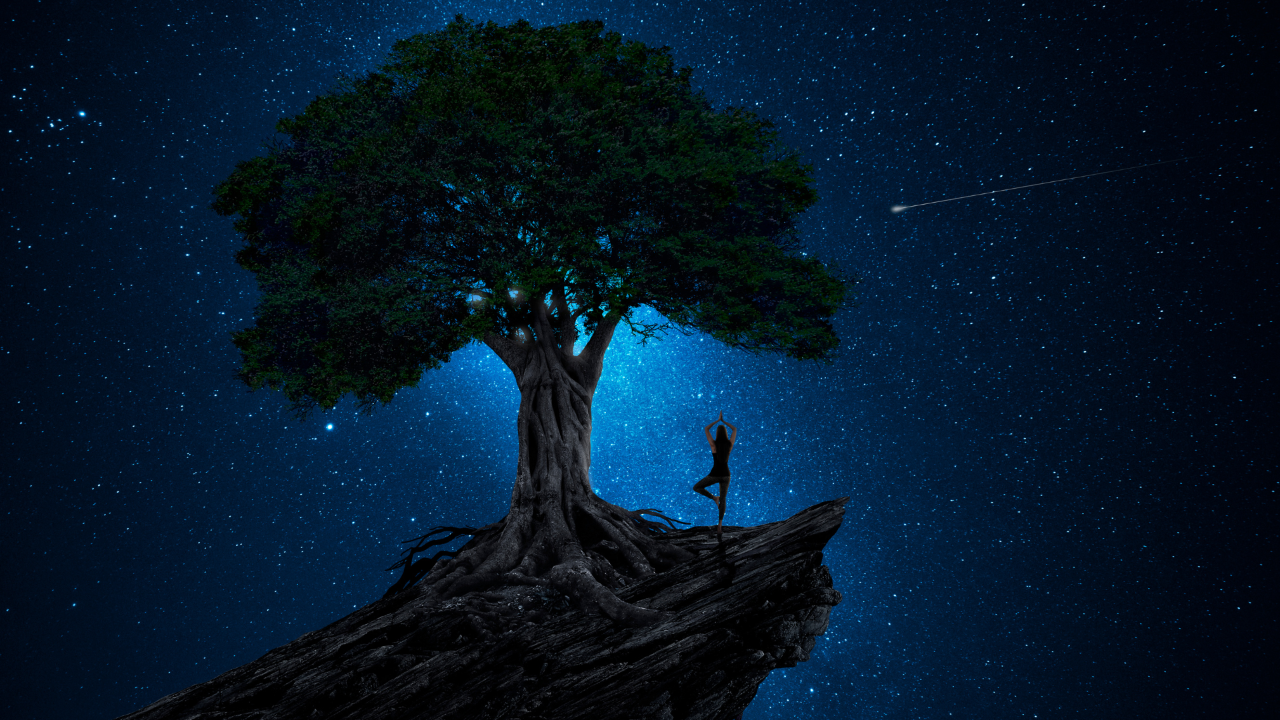Yoga and the Ecological Self
Mar 13, 2025
A powerful moment unfolded during our recent Yoga and Work That Reconnects retreat when our group was practicing Mountain pose.
As we balanced the weight on our feet, strengthened our legs from the ground up, and anchored ourselves in the steadiness of the breath, a palpable shift filled in the room - each of us embodying the mountain's unwavering presence.
Through our physicality and imagination, we connected with something beyond ourselves. The mountain’s strength and steadfastness became our own – not just in a physical sense, but as a source of grounding and resilience to meet life’s daily challenges.
This is just one example of how yoga deepens our connection to something greater than ourselves.
The ecological self, a term coined by Norwegian philosopher Arne Naess in the 1970s, describes an expanded identity in which we see ourselves as fundamentally connected to and interdependent with the more-than-human world.
Naess proposed that by expanding our sense of self beyond the individual, people would develop an intrinsic motivation to care for the environment, because they would see nature's flourishing as part of their own well-being. This idea helped shape the Deep Ecology movement and directly inspired Joanna Macy’s Work that Reconnects.
While Naess popularized the term ecological self, the concept itself has deep historical and cross-cultural roots across Indigenous traditions, Buddhism, and Yoga.
The yogic notion of atman, a Sanskrit term often translated as the "Self," refers to a core of unchanging awareness within each of us - a universal consciousness that pervades all of existence.
Yoga’s practices aim to guide us toward recognizing this Self as our truest identity. We begin to sense, intrinsically, our interconnection to all of life. We see that we don't exist as separate from the more-than-human world, but in relationship to it. We develop an experiential – not just intellectual - understanding of the ecological self.
From this inner experience arises a natural sense of kinship with all of life. We're moved to care for the world because we recognize that its well-being is inseparable from our own.
What if, instead of thinking of yoga as a practice that unites body, mind, and heart, we expand its definition to include all life forms and the Earth herself?
By seeing Earth as part of our larger body, her pain becomes our own. We respond with care and compassion, just as we would care for ourselves or a loved one in need.
In your yoga practice, you can intentionally cultivate this expanded sense of self—one that acknowledges your connection to mountains, rivers, forests, and all beings. Each time you step onto your mat, you can remember that the boundaries between "self" and "other" are more permeable than they might seem.
Through yoga's embodied wisdom, we can rediscover the truth that we belong to this Earth, and in that belonging lies our most promising path forward.
